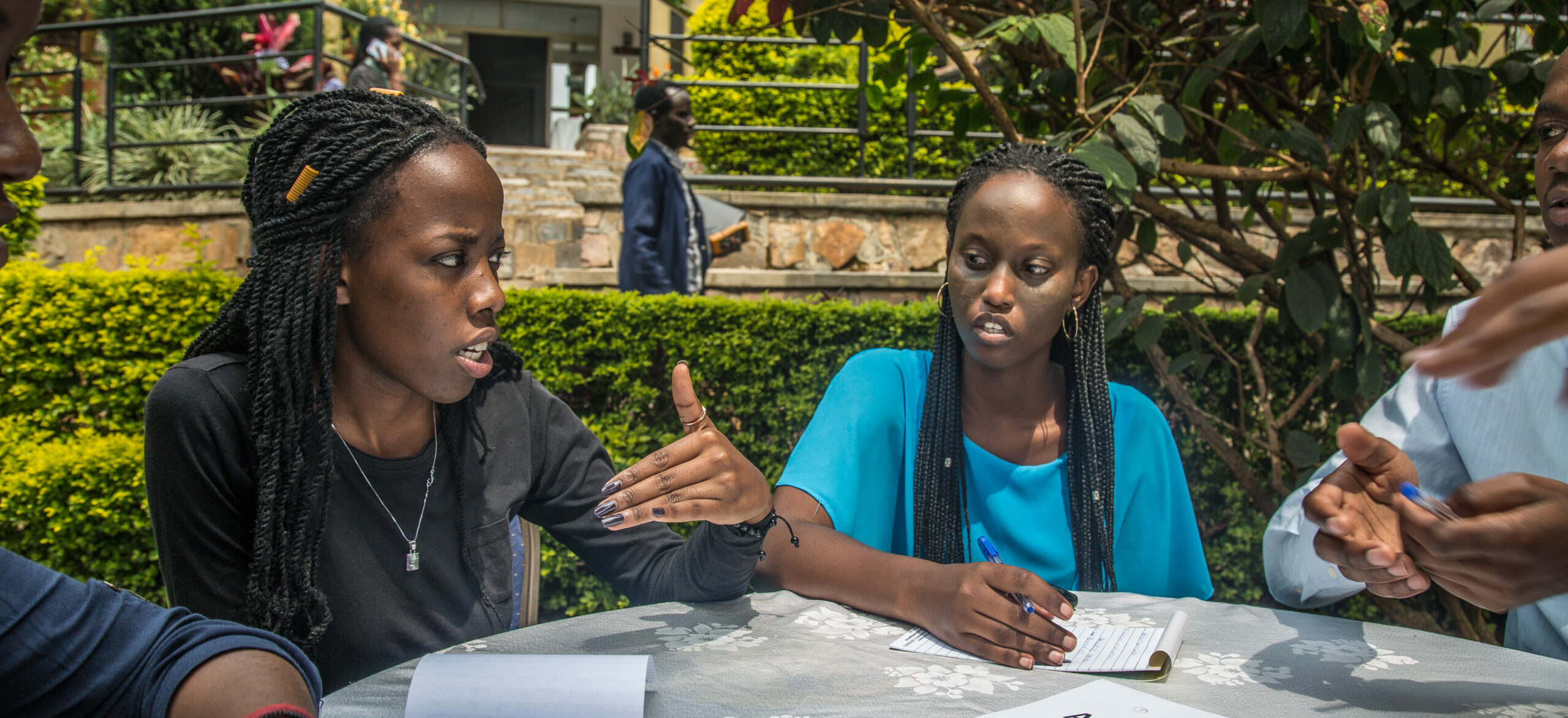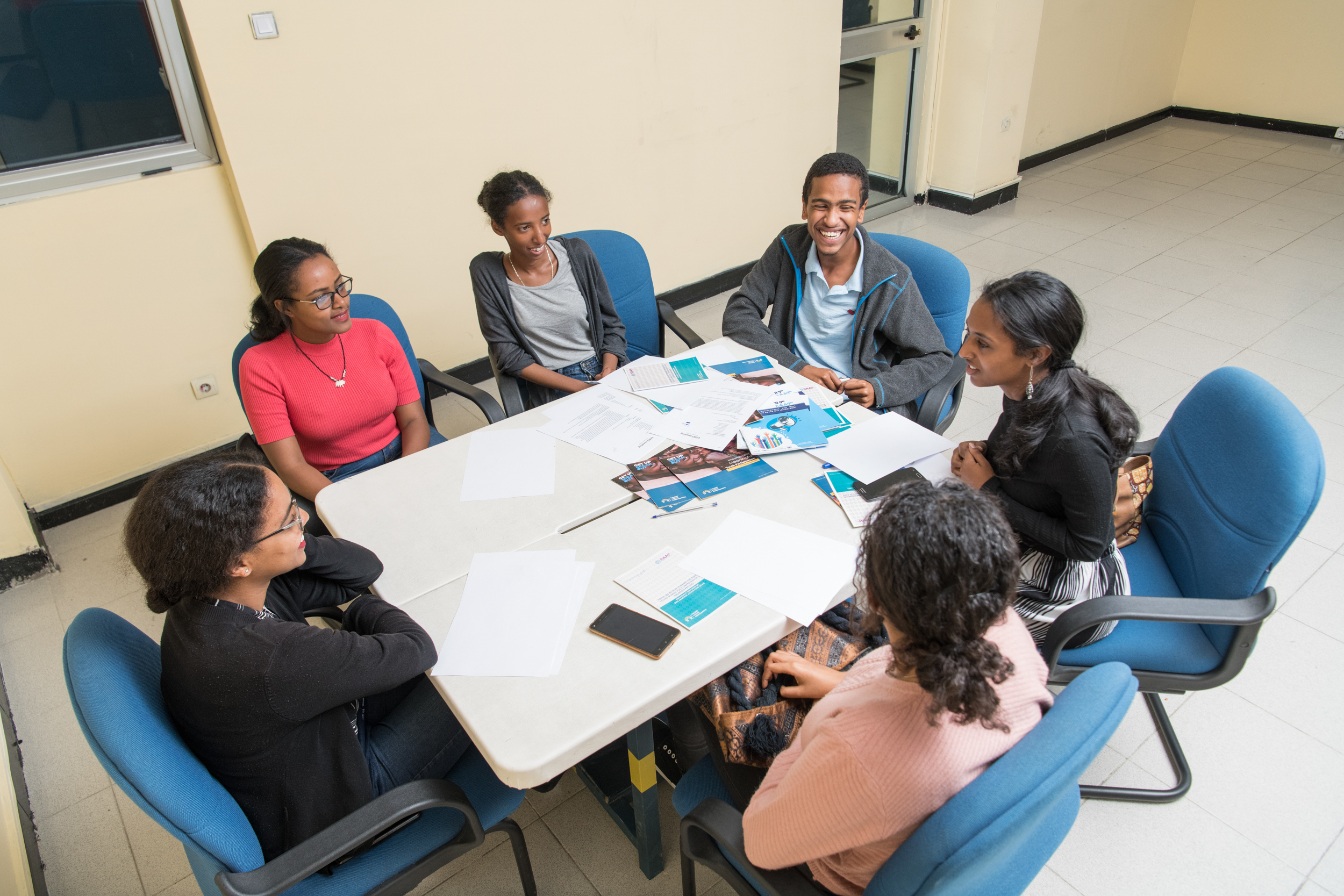Four Accountability Opportunities to Strengthen Country and Regional Family Planning Advocacy
Published on November 8, 2022

By Angela Mutunga, MOMENTUM Country and Global Leadership, and Allison Doody, Family Planning 2030
The 2022 International Conference on Family Planning (ICFP) is right around the corner—and it’s an important one. It’s the first time in four years that the global family planning (FP) community will gather in person. And as we consider the ambitious goals set for 2030 to advance access and options for family planning, there is a magnitude and urgency to our work ahead.
The need and demands are still great. The success of the preceding FP2020 partnership saw an increase in 60 million more women and girls using contraceptives, but there are 218 million women in low-and-middle-income countries who have an unmet need for modern contraception. And more than 257 million women worldwide who want to avoid pregnancy are not using safe, modern family planning methods.
Over the past decade, many ambitious country commitments for family planning led to policy changes and budget investments, but intended gains were often undermined by accountability challenges. In many places, policies were not fully implemented, budgets were not disbursed, and critical groups—particularly civil society—were not fully included.
As we move forward to 2030, it is clear that achieving ambitious family planning goals and meeting family planning needs must stand on the twin pillars of both advocacy and accountability—and be powered by an engine of strong, connected family planning advocates, local country experts, and citizen leaders around the world.
Same ingredients, new recipe for FP advocacy
Evidence-based advocacy drives family planning progress, and accountability is the backbone that ensures commitments are actually met. In the past, accountability was assumed as a part of the equation. Now, the newly-launched Advocacy and Accountability Framework formally calls out accountability as the twin to advocacy, placing it front and center.
This framework is for the do-ers. It acknowledges the importance of local civil society organizations and other key stakeholders. Advocates have the right and responsibility to hold country and global partners—and themselves—to account for their commitments. As a framework—not an agenda or strategy—it proposes a partnership-wide support structure for governments, CSOs, implementing partners, donors and FP2030 to make realistic and attainable progress on family planning commitments by upholding key principles like transparency, inclusivity, and mutual accountability.
Now, the question is how to put this framework into practice. How can advocates shape this framework into regional and country level agendas? After ICFP 2022 closes, advocates and donors will gather specifically to address this question and plan for the future at a side event hosted by USAID MOMENTUM and UNFPA in collaboration with Africa Health Budget Network (AHBN), FP2030, Motion Tracker Innovator-Samasha Medical Foundation, Pathfinder, and The Advocacy and Accountability Collaborative (TAAC) Global Secretariat. Rather than framing the challenges that lie ahead, we see four opportunities to enable advocates to succeed in this decade.
Advocating for Advocacy
Firstly, we must advocate for local advocates. That means intentionally enhancing the role of subnational, regional, and national family planning advocates and civil society organizations to meaningfully engage in the development and implementation of policies and programs—ultimately passing more power to individuals and citizen-led organizations.
This is not passing off the burden of the work and stepping back—it’s equipping local organizations and advocates with the tools and skills that they say they need. This capacity strengthening must be driven and led by local organizations and individuals with the necessary skills. Expertise lies at the ground level, and localization leads to more inclusive, culturally relevant, and successful family planning policies and programs.

Building Strategic and Empowering Partnerships
Supporting and strengthening strategic partnerships between advocates is also a must. A strong global advocacy and accountability movement for family planning is one that is country led, regionally focused, and globally connected.
At the country level, this may look like broader alignment of civil society that includes local youth-led organizations, faith-based organizations, and individual advocates. For example, the Advocacy and Accountability Collective (TAAC) — which partners with MOMENTUM Country and Global Leadership in five countries – links organizations, networks, and individuals through an organized country hubs model to accelerate progress.
At the regional level, there is significant power to mobilize support and garner commitment from government leaders and political decision-makers. Examples include regional economic communities like the East African Community (EAC) and the Economic Community of West African States (ECOWAS). The five new FP2030 Regional Hubs are also expected to steer collective action in a more contextualized and region-specific manner.
The global context matters too, of course. A country’s family planning strategy is interconnected with larger global health and development movements and goals, including Universal Health Coverage (UHC), the Sustainable Development Goals (SDGs), and primary health care (PHC). Global level partnerships for family planning include multilateral organizations like UNFPA and UNICEF, and private foundations. We must also prioritize investments for strong FP data systems, as we have seen with Avenir Health’s Track20, Performance Monitoring for Action’s (PMA’s) DataLab, or the Kaiser Family Foundation health and family planning trackers. These investments are critical sources of data for advocates and for accountability.
We must also prioritize investments for strong national FP data systems, particularly through District Health Information Software (DHIS2) platforms, and for initiatives that are tracking, analyzing, and deploying family planning data like the Global FP Visibility and Analytics Network (VAN), Avenir Health’s Track20, Performance Monitoring for Action’s (PMA’s) DatalLab, or the Kaiser Family Foundation health and family planning trackers. These investments are critical sources of data for advocates and for accountability.
Multilevel partnerships create a strong ecosystem where advocacy work is collaborative and more successful.
Creating a Culture of Learning
For these partnerships to succeed, data, knowledge, and lessons must flow freely between organizations, advocates, groups, and governments. Avoid the fear of criticism. Part of the framework highlights monitoring, evaluation and learning (MEL) for advocacy. In family planning, change is often hard to measure. Initiatives occur over a long period of time, and sometimes results are only apparent after sustained advocacy.
Learning creates more near-term feedback on how actions achieve results, how performance will be tracked, and how advocates can adapt. We want to gather, analyze, and share information and use it to act. In the new framework, this is called the monitor-review-share-act sequence, and it can be used for continuous improvement.
Innovating Investments
Finally, flexible and long-term funding is a major opportunity to make a sustainable difference. Advocacy takes time! Funders, donors, and partners should allow for learning and leave room for adjusting approaches to improve the process. We cannot expect big, sustained results with small investments.
Transferring to a more inclusive, local approach is reflected in the Advocacy and Accountability Framework and in global health and development trends more broadly. We must shift the balance of power to locally driven movements to respond to locally lived experiences and citizens—and to hold governments responsible and accountable to their commitments.
Allison Doody is Advocacy Manager for FP2030, a partnership that supports women’s reproductive choices on whether, when, and how many children to have, as well as their right to make decisions for their own bodies. FP2030 is a convener that elevates local voices, shares insights, and fosters learning opportunities.
Angela Mutunga is the Advocacy and Accountability Lead for MOMENTUM Country and Global Leadership, a Jhpiego-led U.S. Agency for International Development project supporting TAAC in five countries: Côte d’Ivoire, Zambia, India, Sierra Leone, and Burkina Faso. TAAC is also in Kenya and is being established in Uganda.

